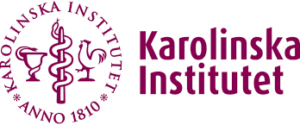Top 10 Medical Universities of the World
Md. Joynal Abdin*
Business Consultant & Digital Marketer
Co-Founder & CEO of Bangladesh Trade Center
Medical universities, also known as medical schools or medical colleges, are institutions of higher education that specialize in providing education and training for aspiring medical professionals, such as doctors, surgeons, and researchers. These universities focus on imparting the knowledge and skills necessary to understand and practice medicine, as well as conducting medical research.
Medical universities typically offer undergraduate and graduate programs specifically tailored for medical students. The curriculum in medical schools includes a comprehensive study of basic sciences, clinical skills, patient care, and medical ethics. Students receive theoretical knowledge through classroom lectures, laboratory work, and practical training in clinical settings, such as hospitals or clinics.
Medical universities also play a crucial role in advancing medical research and innovation. They often have dedicated research facilities and faculty who conduct studies to expand medical knowledge, develop new treatments, and improve healthcare outcomes. These research efforts contribute to advancements in various fields of medicine, including pharmacology, genetics, epidemiology, and medical technology.
Upon completing their medical education, students graduate with a medical degree, such as Doctor of Medicine (M.D.) or Bachelor of Medicine, Bachelor of Surgery (M.B.B.S.). They may then proceed to pursue specialized training in a particular area of medicine through residency programs or engage in further research through postgraduate studies.
Medical universities are essential institutions for producing competent medical professionals, conducting groundbreaking research, and contributing to the overall advancement of healthcare.

Top 10 Medical Universities:
The rankings of medical universities can vary depending on different criteria and methodologies used. However, here is a list of 10 renowned medical universities from around the world, known for their quality of education, research contributions, and reputation in the medical field:
- Harvard University – United States
- University of Oxford – United Kingdom
- Stanford University – United States
- Johns Hopkins University – United States
- University of Cambridge – United Kingdom
- Karolinska Institute – Sweden
- Massachusetts Institute of Technology (MIT) – United States
- University of California, Los Angeles (UCLA) – United States
- University College London (UCL) – United Kingdom
- Imperial College London – United Kingdom
It’s important to note that rankings can vary over time and based on different assessments. Different organizations and publications may have different rankings, so it’s advisable to explore multiple sources to gather a comprehensive view. Additionally, there are many other excellent medical universities around the world that may not be included in this list.

Harvard University, located in Cambridge, Massachusetts, is one of the most prestigious universities in the world. It is renowned for its academic excellence, global impact, and its highly regarded medical programs offered through the Harvard Medical School.
Here are some key aspects of Harvard University and its medical programs:
- Harvard Medical School: The Harvard Medical School (HMS) is one of the most esteemed medical schools globally. It offers a range of programs, including the Doctor of Medicine (M.D.) program, as well as combined degree programs like M.D./Ph.D. and M.D./M.B.A. HMS is known for its rigorous curriculum, emphasis on clinical training, and research opportunities.
- World-Class Medical Research: Harvard University has a strong emphasis on medical research. The university’s medical researchers have made groundbreaking discoveries and advancements in various fields, including genomics, stem cell research, neuroscience, immunology, and public health. Harvard-affiliated research institutions, such as the Harvard Stem Cell Institute and the Broad Institute, contribute to cutting-edge medical research.
- Teaching Hospitals: Harvard is affiliated with renowned teaching hospitals and medical centers, including Massachusetts General Hospital, Brigham and Women’s Hospital, and Boston Children’s Hospital. These affiliations provide students with exceptional clinical training opportunities, exposure to diverse patient populations, and access to state-of-the-art medical facilities.
- Interdisciplinary Collaboration: Harvard University promotes interdisciplinary collaboration across its various schools and departments. This multidisciplinary approach fosters innovation and encourages cross-pollination of ideas among medical professionals, scientists, engineers, and other experts. Collaborative efforts between Harvard Medical School and other Harvard schools, such as the Harvard T.H. Chan School of Public Health and the Harvard Business School, tackle complex healthcare challenges.
- Harvard-affiliated Research Centers and Institutes: Harvard University hosts numerous research centers and institutes focused on medical research and healthcare innovation. These include the Harvard-MIT Division of Health Sciences and Technology, the Wyss Institute for Biologically Inspired Engineering, and the Harvard Global Health Institute. These centers drive groundbreaking research and encourage collaboration among experts from different disciplines.
- Global Health Initiatives: Harvard University has a strong commitment to global health. It engages in research, education, and initiatives to address global health disparities, improve healthcare access, and promote public health worldwide. The university collaborates with global partners, governments, and international organizations to tackle critical global health challenges.
Harvard University’s medical programs, combined with its rich academic heritage, commitment to research, and interdisciplinary collaboration, position it as a global leader in medical education and research. The university continues to produce exceptional medical professionals, contribute to medical advancements, and shape the future of healthcare.

The University of Oxford, located in Oxford, United Kingdom, is one of the world’s oldest and most prestigious universities. Oxford has a strong reputation for academic excellence, research contributions, and its medical programs, which are offered through the renowned Oxford Medical School.
Here are some key aspects of the University of Oxford and its medical programs:
- Oxford Medical School: The Oxford Medical School is known for its rigorous and comprehensive medical education programs. The school offers a range of undergraduate and graduate medical courses, including the Bachelor of Medicine, Bachelor of Surgery (BM BCh) degree. The program combines theoretical knowledge, clinical skills training, and practical experience to prepare students for a career in medicine.
- Research Excellence: Oxford University is a world leader in medical research. The university’s medical researchers have made significant contributions to various fields, including neuroscience, genetics, immunology, cancer research, and global health. Oxford’s research institutes, such as the Oxford Biomedical Research Centre and the Wellcome Trust Centre for Human Genetics, are internationally recognized for their cutting-edge research.
- Clinical Training: Oxford has strong partnerships with renowned hospitals and healthcare institutions, such as the John Radcliffe Hospital and the Churchill Hospital. These clinical partnerships provide medical students with exposure to a wide range of medical specialties, practical clinical training, and opportunities to work alongside experienced clinicians.
- Oxford Radcliffe Medical Library: The university’s medical library, known as the Radcliffe Medical Library, offers extensive resources for medical students, researchers, and healthcare professionals. It provides access to a vast collection of medical literature, databases, journals, and online resources to support research and learning.
- Interdisciplinary Collaboration: Oxford University encourages interdisciplinary collaboration and offers opportunities for medical students to engage with other fields of study, such as biology, biochemistry, pharmacology, and public health. This interdisciplinary approach fosters a well-rounded understanding of healthcare challenges and promotes innovation in medical research and practice.
- Global Health Initiatives: Oxford University is actively involved in global health initiatives, collaborating with international organizations, governments, and institutions to address global health challenges. The university’s research and projects focus on areas such as infectious diseases, public health policy, and healthcare delivery in low-resource settings.
The University of Oxford’s commitment to academic excellence, research, and interdisciplinary collaboration has established it as a leading institution in medical education and research. The university’s Oxford Medical School continues to produce skilled healthcare professionals and contribute to advancements in medical knowledge, making a significant impact on the field of medicine.

Stanford University is a prestigious private research university located in Stanford, California, United States. Known for its academic excellence and innovation, Stanford offers a wide range of programs across multiple disciplines, including its highly regarded School of Medicine.
Here are some key aspects of Stanford University and its medical programs:
- Stanford School of Medicine: Stanford’s School of Medicine is renowned for its comprehensive medical education and research programs. It offers a variety of degree programs, including the Doctor of Medicine (M.D.) program, as well as combined degree programs such as M.D./Ph.D. and M.D./M.B.A. The medical school emphasizes a multidisciplinary approach to healthcare and research, fostering collaborations among medical professionals, scientists, engineers, and other experts.
- Cutting-Edge Medical Research: Stanford University is known for its groundbreaking medical research and innovation. The university’s medical researchers have made significant contributions to various fields, including genomics, biomedical engineering, neuroscience, immunology, and precision medicine. Stanford’s renowned research centers, such as the Stanford Cardiovascular Institute and the Stanford Cancer Institute, facilitate cutting-edge research projects and collaborations.
- Stanford Hospital and Clinics: Stanford University is affiliated with the Stanford Hospital and Clinics, which is consistently ranked among the top hospitals in the United States. This affiliation provides medical students with opportunities for clinical training and exposure to a wide range of medical specialties. The hospital is known for its advanced medical technologies, specialized clinical services, and patient-centered care.
- Interdisciplinary Collaborations: Stanford University encourages interdisciplinary collaboration across different fields of study. The university’s proximity to Silicon Valley facilitates partnerships between medical professionals and technology experts, fostering innovation in healthcare delivery, digital health, and medical devices. Collaborative initiatives such as the Stanford Bio-X program bring together researchers from diverse disciplines to address complex biomedical challenges.
- Stanford Biodesign Program: Stanford’s Biodesign Program is a unique initiative that focuses on innovation and entrepreneurship in healthcare. It trains students and professionals to identify unmet medical needs, develop innovative solutions, and bring them to market. The program has been instrumental in fostering a culture of entrepreneurship and driving the development of medical technologies and startups.
- Global Health Initiatives: Stanford University is committed to global health and actively engages in research and initiatives to address global health disparities and challenges. The university collaborates with international partners and conducts projects worldwide to improve healthcare access, promote public health, and address pressing global health issues.
Stanford University’s School of Medicine, along with its culture of innovation, interdisciplinary collaboration, and dedication to medical research and education, has established it as a prominent institution in the field of medicine. The university’s contributions to medical advancements, healthcare delivery, and entrepreneurship continue to shape the landscape of modern medicine.

Johns Hopkins University (JHU) is a renowned private research university located in Baltimore, Maryland, United States. It is widely recognized for its excellence in various fields, including medicine, public health, and biomedical research. While JHU is not solely a medical university, its School of Medicine is highly regarded and has made significant contributions to the medical field.
The Johns Hopkins School of Medicine, founded in 1893, is one of the leading medical schools in the United States. It is known for its rigorous academic programs, innovative research, and emphasis on patient care. The medical school offers a range of degree programs, including Doctor of Medicine (M.D.), Doctor of Philosophy (Ph.D.) in biomedical sciences, and combined degree programs.
In addition to the School of Medicine, Johns Hopkins University has other divisions and schools that are closely related to the medical field. These include the Bloomberg School of Public Health, which is one of the top public health schools globally, and the School of Nursing, known for its nursing education and research.
Johns Hopkins University has a strong commitment to medical research and is home to several prestigious research institutes and centers. Notably, the Johns Hopkins Hospital, affiliated with the university, is consistently ranked among the top hospitals in the United States. The university’s researchers have made significant contributions to various medical disciplines, including neurology, oncology, cardiology, and infectious diseases.
Overall, Johns Hopkins University is highly regarded for its contributions to the medical field, its commitment to research and innovation, and the quality of education it provides to aspiring medical professionals.

The University of Cambridge, located in Cambridge, United Kingdom, is one of the oldest and most prestigious universities in the world. It is renowned for its academic excellence, research contributions, and its distinguished faculty and alumni. While Cambridge is a comprehensive university with various faculties, its School of Clinical Medicine is highly regarded for medical education and research.
Here are some key aspects of the University of Cambridge and its medical programs:
- School of Clinical Medicine: The School of Clinical Medicine at the University of Cambridge offers a world-class medical education program. It provides training for medical students, clinicians, and researchers, combining theoretical knowledge with clinical experience. The school is known for its rigorous curriculum, emphasis on evidence-based medicine, and high-quality teaching.
- Medical Research and Innovation: The University of Cambridge is at the forefront of medical research and innovation. The university’s medical researchers have made significant contributions to various fields, including neuroscience, genetics, regenerative medicine, and infectious diseases. Cambridge’s research institutes and centers, such as the Cambridge Institute for Medical Research (CIMR) and the Cancer Research UK Cambridge Institute, are renowned for their cutting-edge research.
- Clinical Partnerships: The university has strong collaborations with renowned hospitals and healthcare institutions in the Cambridge area, such as Addenbrooke’s Hospital. These partnerships provide students with opportunities for clinical training and exposure to diverse medical specialties, allowing them to develop clinical skills and work with experienced clinicians.
- Interdisciplinary Approach: Cambridge encourages interdisciplinary collaboration and offers opportunities for medical students to engage with other fields, such as biochemistry, genetics, and computational biology. This interdisciplinary approach fosters a comprehensive understanding of healthcare and enables students to explore innovative solutions to medical challenges.
- Medical Societies and Support: The University of Cambridge has several medical societies and support networks that provide resources, mentorship, and extracurricular activities for medical students. These societies promote networking, professional development, and a sense of community among medical students.
- Affiliated Research Institutes: The university is affiliated with world-leading research institutes, such as the Wellcome Trust Sanger Institute and the MRC Laboratory of Molecular Biology. These institutes conduct cutting-edge biomedical research and offer opportunities for collaboration and research projects for medical students and researchers.
The University of Cambridge’s School of Clinical Medicine, combined with its rich academic heritage and commitment to research and innovation, has established it as a prestigious institution in the field of medicine. The university continues to produce skilled medical professionals, contribute to advancements in medical knowledge, and play a significant role in shaping the future of healthcare.

Karolinska Institute, often referred to as Karolinska Institutet (KI), is a prestigious medical university located in Stockholm, Sweden. Established in 1810, it is one of the world’s leading centers for medical education and research, particularly in the field of biomedicine.
Karolinska Institute is renowned for its emphasis on evidence-based medicine, scientific research, and its close ties to the Nobel Prize. The Nobel Assembly at Karolinska Institute is responsible for selecting the Nobel laureates in Physiology or Medicine each year.
Key features and highlights of Karolinska Institute include:
- Medical Education: Karolinska Institute offers a range of medical programs, including the Bachelor’s program in Biomedicine, the Master’s program in Biomedicine, and the renowned Doctor of Medicine (M.D.) program. The M.D. program is conducted entirely in Swedish, while some master’s programs are offered in English.
- Biomedical Research: Karolinska Institute is internationally recognized for its groundbreaking biomedical research. The university focuses on areas such as neuroscience, immunology, cancer research, molecular medicine, epidemiology, and public health. It has state-of-the-art research facilities and collaborates with various research institutions worldwide.
- Karolinska University Hospital: The university is closely associated with the Karolinska University Hospital, which serves as a teaching hospital and provides clinical training opportunities for students. The hospital is renowned for its specialized medical care and serves as a hub for research and innovation.
- Nobel Assembly and Nobel Prizes: The Nobel Assembly at Karolinska Institute is responsible for awarding the Nobel Prize in Physiology or Medicine. This affiliation with the Nobel Prize reinforces the institute’s global reputation and attracts top researchers and students.
Karolinska Institute’s commitment to scientific excellence, innovative research, and medical education has made it a highly respected institution in the medical field. It continues to produce outstanding medical professionals, foster groundbreaking research, and contribute significantly to advancements in healthcare and biomedicine.

Massachusetts Institute of Technology (MIT) is a prestigious private research university located in Cambridge, Massachusetts, United States. While MIT is known for its strength in science, technology, engineering, and mathematics (STEM), it also offers programs in various other fields, including medicine and health sciences.
Here are some key aspects of MIT and its contributions to medicine and health sciences:
- School of Engineering: MIT’s School of Engineering is renowned for its innovative research and education in engineering disciplines that intersect with healthcare and medicine. Areas of focus include biomedical engineering, medical devices, computational biology, and bioinformatics. The school emphasizes interdisciplinary collaborations and the application of engineering principles to address medical challenges.
- Institute for Medical Engineering and Science (IMES): The Institute for Medical Engineering and Science at MIT brings together engineers, scientists, and medical professionals to advance medical research and develop new technologies for healthcare. IMES supports interdisciplinary research programs in areas such as biomedical imaging, drug delivery, tissue engineering, and regenerative medicine.
- Koch Institute for Integrative Cancer Research: MIT’s Koch Institute is dedicated to cancer research and aims to advance the understanding, detection, and treatment of cancer. It brings together researchers from various disciplines, including biology, engineering, and medicine, to collaborate on innovative cancer research projects.
- Computational Biology and Bioinformatics: MIT has significant expertise in computational biology and bioinformatics, which involve using computational and data-driven approaches to analyze biological systems and biomedical data. This field plays a crucial role in understanding complex biological processes, drug discovery, and personalized medicine.
- Healthcare Innovation and Entrepreneurship: MIT fosters an entrepreneurial culture and supports the translation of scientific discoveries into practical applications. The university has programs and initiatives that encourage students and researchers to develop healthcare innovations, start companies, and address healthcare challenges through entrepreneurship.
- Global Health Initiatives: MIT has a strong commitment to global health, engaging in research and initiatives to address health disparities and global health challenges. The university collaborates with international organizations, governments, and research institutions to improve healthcare delivery and promote public health worldwide.
While MIT is not primarily a medical school, its interdisciplinary approach, focus on cutting-edge research, and collaborative efforts with other institutions contribute to advancements in medicine, healthcare technology, and biomedical research. MIT’s impact on the medical field lies in its engineering-driven approaches, innovation, and commitment to solving healthcare challenges.

The University of California, Los Angeles (UCLA), is a renowned public research university located in Los Angeles, California, United States. While UCLA is a comprehensive university offering a wide range of academic disciplines, its David Geffen School of Medicine is highly regarded in the field of medical education and research.
Here are some key aspects of UCLA and its medical school:
- David Geffen School of Medicine: The David Geffen School of Medicine at UCLA is a prominent institution for medical education and training. It offers various programs, including the Doctor of Medicine (M.D.) program, as well as combined degree programs such as M.D./Ph.D. and M.D./M.B.A. The medical school emphasizes community engagement, clinical care, and research excellence.
- Medical Education and Training: UCLA medical students receive comprehensive training in basic sciences, clinical skills, and patient care. The curriculum incorporates classroom lectures, practical experience, and clinical rotations in renowned affiliated hospitals, such as Ronald Reagan UCLA Medical Center and UCLA Medical Center, Santa Monica.
- Research and Innovation: UCLA is recognized for its contributions to medical research and innovation. The university has numerous research centers and institutes dedicated to various medical specialties, including neuroscience, cancer research, cardiology, immunology, and public health. UCLA researchers have made significant advancements in these fields, and the university attracts substantial funding for research projects.
- Healthcare Facilities: UCLA Health is the health system associated with the university and operates various hospitals, clinics, and medical centers. These facilities provide high-quality patient care, offer opportunities for clinical training and exposure, and facilitate collaboration between researchers and clinicians.
- Interdisciplinary Approach: UCLA promotes interdisciplinary collaboration and offers opportunities for medical students to engage with other fields, such as engineering, public health, and social sciences. This interdisciplinary approach allows for a broader understanding of healthcare challenges and encourages innovative solutions.
UCLA’s commitment to academic excellence, research, and community engagement has contributed to its reputation as a leading institution in medical education and healthcare. The university continues to produce skilled medical professionals, conduct groundbreaking research, and play an active role in shaping the future of medicine.

University College London (UCL) is a prestigious public research university located in London, United Kingdom. UCL has a strong reputation for its comprehensive academic programs, research contributions, and its medical and health sciences division, which includes the UCL Medical School.
Here are some key aspects of UCL and its medical school:
- UCL Medical School: The UCL Medical School is one of the leading medical schools in the UK and is known for its innovative and research-driven approach to medical education. It offers undergraduate and graduate medical programs, including the Bachelor of Medicine, Bachelor of Surgery (MBBS) degree and various postgraduate courses. The medical school provides a rigorous curriculum that combines theoretical knowledge with practical training and clinical experience.
- Research Excellence: UCL is highly regarded for its research output and contributions to medical science. The university has numerous research institutes and centers dedicated to various fields, such as neuroscience, cancer research, public health, genetics, and biomedical engineering. UCL’s researchers have made significant discoveries and advancements in medicine, pushing the boundaries of scientific knowledge.
- Teaching Hospitals: UCL has strong affiliations with several prominent teaching hospitals, such as University College Hospital and Great Ormond Street Hospital for Children. These hospitals provide clinical training opportunities for UCL medical students, allowing them to gain hands-on experience in a diverse range of medical specialties and interact with leading healthcare professionals.
- Global Health Initiatives: UCL places a strong emphasis on global health and has initiatives that aim to address global health challenges through research, education, and collaborations. The university actively participates in international health projects, fosters global health partnerships, and promotes interdisciplinary approaches to tackle global health issues.
- Interdisciplinary Collaboration: UCL encourages interdisciplinary collaboration across different disciplines, fostering interactions between medical professionals, researchers, and students from various fields. This interdisciplinary approach facilitates cross-pollination of ideas and innovation in healthcare delivery, research, and education.
UCL’s medical and health sciences division, along with its overall reputation as a leading research institution, attracts talented students, accomplished faculty, and significant research funding. UCL’s commitment to excellence in medical education, research, and global health initiatives makes it a respected institution in the field of medicine and health sciences.

Imperial College London, commonly referred to as Imperial, is a renowned public research university located in London, United Kingdom. It is widely recognized for its strength in science, engineering, medicine, and business. While Imperial is a multidisciplinary institution, its Faculty of Medicine is highly regarded both nationally and internationally.
Here are some key aspects of Imperial College London and its medical programs:
- Faculty of Medicine: Imperial’s Faculty of Medicine offers a range of medical programs, including the Bachelor of Medicine, Bachelor of Surgery (MBBS) degree. The faculty is known for its rigorous curriculum, cutting-edge research, and emphasis on practical training. The MBBS program combines foundational scientific knowledge with clinical experience, preparing students for a career in medicine.
- Research Excellence: Imperial College London has a strong research culture, and its medical faculty contributes significantly to medical research and innovation. The faculty focuses on a wide range of medical disciplines, including neuroscience, cancer research, public health, cardiovascular science, and biomedical engineering. The university’s researchers have made groundbreaking discoveries and advancements in various areas of medicine.
- Clinical Partnerships: Imperial College London has strong partnerships with renowned hospitals and healthcare institutions, such as Imperial College Healthcare NHS Trust. These partnerships provide students with access to world-class clinical facilities, allowing them to gain practical experience and work alongside experienced clinicians.
- Innovation and Entrepreneurship: Imperial is known for its entrepreneurial culture and the translation of research findings into practical applications. The university actively supports innovation and entrepreneurship in the medical field, encouraging students and researchers to develop and commercialize healthcare technologies and solutions.
- Global Collaborations: Imperial College London collaborates with leading universities, research institutions, and healthcare organizations worldwide. These collaborations facilitate knowledge exchange, international research projects, and global health initiatives. Imperial’s global network strengthens its position as a hub for medical research and education.
- Biomedical Research Facilities: Imperial has state-of-the-art research facilities and institutes dedicated to biomedical research. For example, the Imperial College Academic Health Science Centre brings together researchers, clinicians, and industry partners to accelerate the translation of scientific discoveries into patient care.
Imperial College London’s Faculty of Medicine is known for its academic excellence, research contributions, and commitment to innovation in healthcare. The university’s strong emphasis on interdisciplinary collaboration, entrepreneurial culture, and global connections make it a respected institution in the medical field.
Top 10 Medical Universities of the World: Top 10 Medical Universities of the World: Top 10 Medical Universities of the World
*Author’s Short Profile:

Mr. Md. Joynal Abdin is a Business Consultant & Digital Marketer based in Dhaka, Bangladesh. He is also Co-Founder & CEO of Bangladesh Trade Center. Previously he served at Dhaka Chamber of Commerce & Industry (DCCI) as Executive Secretary; DCCI Business Institute (DBI) as Executive Director; SME Foundation as Deputy Manager; and the Federation of Bangladesh Chambers of Commerce & Industry (FBCCI) as Assistant Secretary.
The list of services Mr. Abdin is offering includes but not limited to Business Research and Documentations like Feasibility Study, Project Proposal Preparation, Writing Business Manual, Standard Operating Procedures etc.; Export Market Selection and Product Positioning at Home and Abroad; Buyers-Sellers Matchmaking; Website Development; Search Engine Optimization (SEO); and Social Media Marketing etc.

